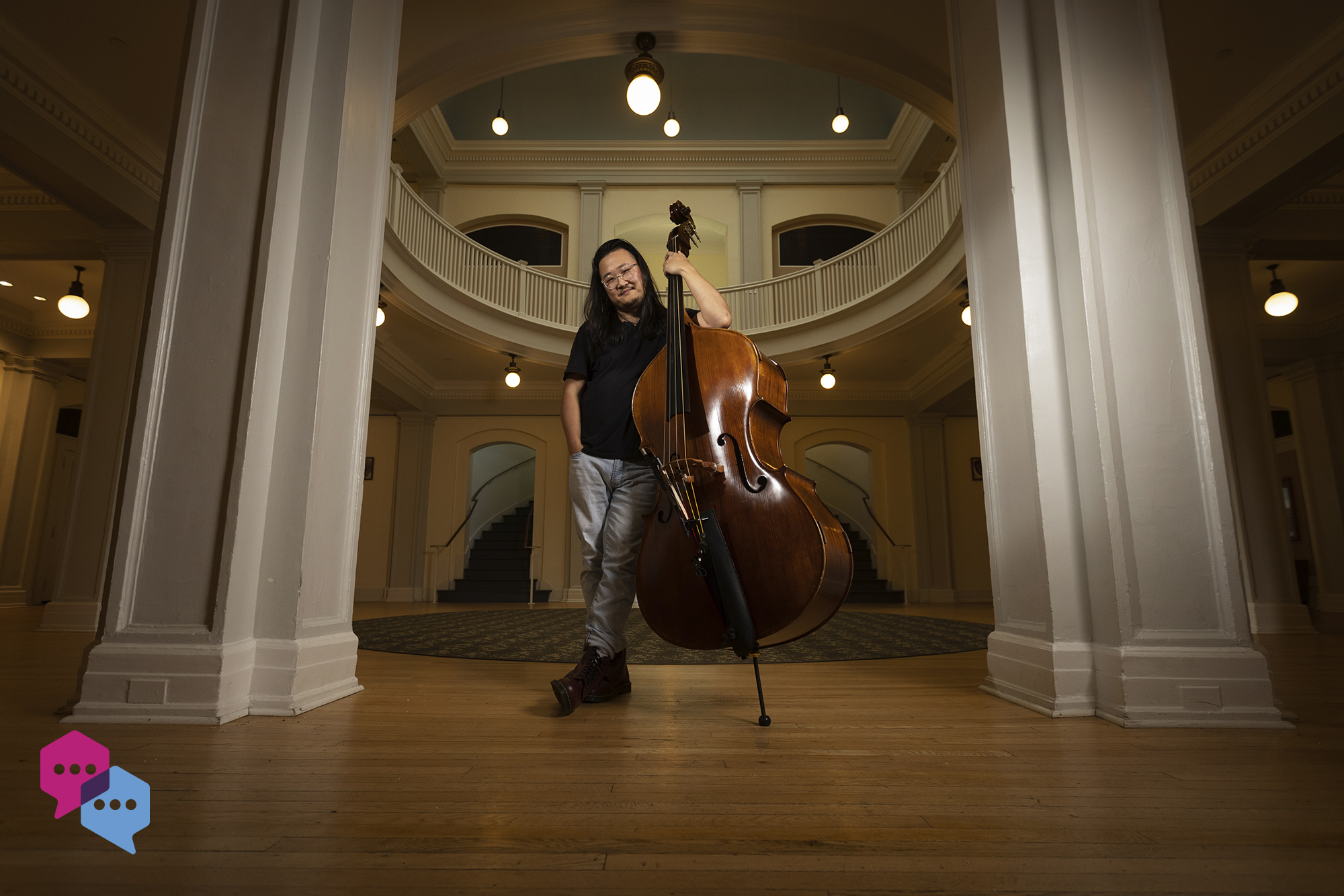Ken Tianyuan Ge is a PhD student and bassist in the Department of Music within the UNC College of Arts and Sciences. His research critiques the “oceanic postcolonial,” a system of power animating the production of entertainment, hospitality, and leisure aboard cruise ships.
Q: How did you discover your specific field of study?
A: I was in grad school for music performance at the University of Miami, where I took a seminar in jazz and cultural studies with my mentor, David Ake. Through that experience, I discovered that there was an entire community of thinkers interested in music’s entanglement — for better or for worse — with social, political, financial, material, and psychic worlds. This critical perspective was a far cry from the conservatory paradigm into which I’d been socialized, and it awakened a passion for research and writing.
Q: Academics are problem-solvers. Describe a research challenge you’ve faced and how you overcame it.
A: How to write about people in ways that honor the weight and velocity of their lived experience, delaying the move to fix them into a familiar story about oppression, resistance, or identity. It’s the old problem of power and representation, the tension between practice and theory. I tackle this through affective ethnography: a mode of writing and analysis that embraces the poetic, enlisting the reader into a project of feeling as a project of thought. For my dissertation, I am currently writing about music workers in the global cruise industry.
The cultural anthropologist Renato Rosaldo articulates this beautifully in his essay “Notes on Poetry and Ethnography”: “[Poetry] is not an ornament; it does not make things pretty. Nor does it shy away from agony and distress. Instead it brings things closer, or into focus, or makes them palpable. It slows the action, the course of events, to reveal depth of feeling and to explore its character. It is a place to dwell and savor more than a space for quick assessment.” So, it’s about carving out a dwelling space on the page and in conversation.
Q: Describe your research in five words.
A: Cruising through labor, music, affect.
Q: Who or what inspires you? Why?
A: Writers, musicians, and improvisers. More specifically, Keith Jarrett, Ornette Coleman, Cathy Park Hong, and Ocean Vuong. Scholars like Fred Moten, Katherine McKittrick, Kathleen Stewart, and Sianne Ngai. I always come away from their work feeling shifted. Additionally, my friends and colleagues in the Department of Music at UNC-Chapel Hill and at the University of Miami — who have provided loads of wisdom and solidarity in and about academic life.
Q: If you could pursue any other career, what would it be and why?
A: Maybe I would work with food. I love to cook for people.


